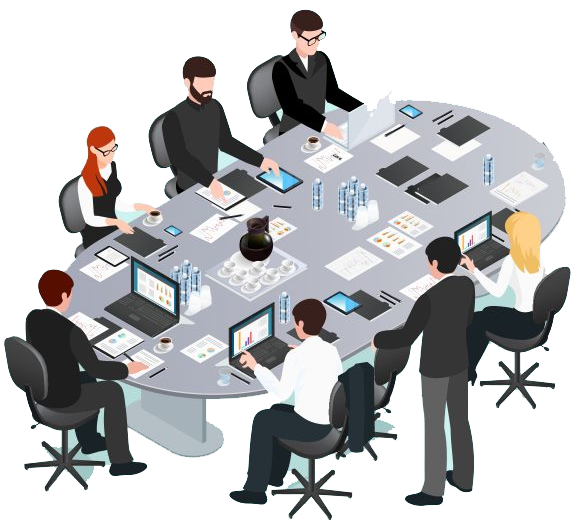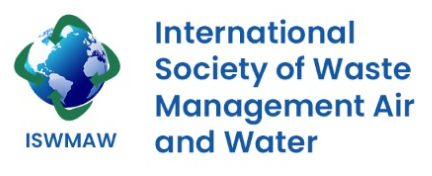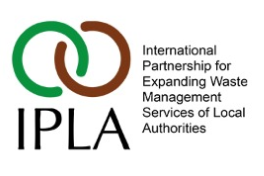About conference

International Society of Waste Management Air and Water - Know more
Resource exploitation, waste generation and increased emission are impacting nature and life on the earth. Nearly 2.1 billion tonnes of waste generation at present are estimated to reach a colossal dump of 3.4 billion tonnes by 2050 while India contributes to 12% with 17.7% global population and 2.4% of total world surface area. Increase in global mean temperature creating problems in human civilisation. To achieve sustainable development goals and make the world comfortable for the next generations we have to change the consumption patterns to reduce waste generation with resource efficiency and convert waste into valuable products decarbonising the processes. The overall aim of the 14th IconSWM-CE & IPLA GF 2024 is to facilitate discussions and knowledge sharing among various stakeholders such as, the government, academic and research institutes, industries, Urban Local Bodies (ULBs), NGOs, and other interest groups from various countries to address above issues involving 800 delegates from nearly 60 countries.
The overall aim of the 14th International Conference on Sustainable Waste Management and Circular Economy & IPLA Global Forum 2024 is to bring together various stakeholders and facilitate discussions and knowledge sharing among the stakeholders such as, the government, academic and research institutes, industries, Urban Local Bodies (ULBs), NGOs, and other interest groups to address the issues related to waste management and circular economy.
Read more
Conference Themes
- Waste : Solid Waste Management (Municipal, Plastics, E-Waste, Industrial, Hazardous, BMW, C&DW, Metal, Textiles, Food, Agricultural, Biomass, ELV, Steel Slag, Fly Ash), Liquid Waste Management (Wastewater, Sludge etc.), Waste Stream Analysis, Waste-to-Resource, 3R & Circular Economy, Net zero economy, Up cycling, Down cycling, Sustainable Packaging, Circular Product design, Circular Business Model, Circular Cities, Environmental Footprint, Waste Diversion, Waste Audit, Waste Governance, Other case studies related to Circular Economy, Green Supply Chain Management
- Business : Business Models, Feasibility Studies, Reverse Logistics, Supply Chain Sustainability, Green Procurement, Green Infrastructure, Eco-efficiency, Eco-labeling, Sustainable Consumption and Production (SCP), Best Practices, Extended Producer Responsibility (EPR)
- Engineering : Material Recovery Facilities (MRF), Theoretical Modeling, Design for Remanufacturing, Eco-design, Closed-loop Manufacturing, Reverse Cycles and Cascades
- Entrepreneurship : Social Entrepreneurship, Environmental Entrepreneurship, Sustainable Entrepreneurship, Environmental Social and Governance (ESG), Design thinking and frugal innovation for sustainability
- Policies and Regulations : Legislation, Strategies & Policies, Procurement policies, International agreement and treaties, Legislative acts related to waste management
- Technology : Technologies & Innovation (Treatment, Recycling, Co-processing, Implementation, Energy & Material Recovery, Value Added Products, Secondary Raw Materials), Sustainable Manufacturing in Industry 4.0 and 5.0
- Social : Smart Cities implementation, Ecological Design, Partnership and collaboration, Behavioral change and public awareness, Social impact of waste management, Community based waste management, Stakeholder engagement
- Industry : Material Passport, Sustainable Materials Management, Green Chemistry, Resource efficiency, Regenerative Design, Life Cycle Assessment (LCA), Bio-economy
Circular Economy
Circular economy is a systems-level approach to economic development and a paradigm shift from the traditional concept of linear economy model of extract-produce-consume-dispose deplete (epcd2) to an elevated echelon of achieving zero waste by resource conservation through changed concept of design of production processes and materials selection for higher life cycle, conservation of all kinds of resources, material and/or energy recovery all through the processes, and at the end of the life cycle for a specific use of the product will be still fit to be utilised as the input materials to a new production process in the value chain with a close loop materials cycles that improves resource efficiency, resource productivity, benefit businesses and the society, creates employment opportunities and provides environmental sustainability. CE helps in utilising Secondary Raw Materials (SRM).
However, linear economy model of epcd2 ignores the high economic, environmental and social costs related to the extraction, transformation and disposal of resources and is, therefore, unsustainable in the long term. CE focused on regenerative close loop system for living within our planetary boundaries. However, a transition to a CE is both a necessity and an opportunity, with the potential to offer long-lasting economic, environmental and social benefits.
For Paper Presentation
Submit AbstractPre-Conference Workshop
It aims to benefit scholars and academicians. In this one-day event will feature three consecutive sessions addressing various aspects of the research journey, article writing, and publication in top-rated journals.
Pre-Requisite for Participants
The workshop will be entirely hands-on. Participants are expected to bring a draft article (related to sustainability, circular economy and waste management), which will be developed and refined into a publishable piece, depending on the promptness and competence level of the participant. The learning process and its application will be conducted live and interactive throughout the workshop.

The concepts of 3Rs to shift from the situation of linear economy of epcd2 (extract-produce-consume-dispose-deplete).
R
ReduceR
ReuseR
RecycleSchool Children's Congress
We cordially invite children in grades 6 to 10 from both public and private schools to participate in the School Children's Congress on Waste Management & Circular Economy, on 27th November to be organized as a part of the 14th International Conference on Sustainable Waste Management - Circular Economy and IPLA Global Forum 2024, International Society of Waste Management Air and Water [ISWMAW] and GITAM. This program aims to educate young people while encouraging them to participate actively in creating a sustainable future by implementing the principles of circular economy. This congress is a part of the India wide mission "Catch Them Young: Circular Economy in Campus" of ISWMAW.
Read moreHackathon
This 12-hour event, challenges you to develop solutions that transform dry waste from educational institutions into valuable products. Be a part of the circular economy revolution!
Read moreImportant Dates
Cycle 2
Campus Location Vishakapatnam
Gandhi Nagar, Rushikonda,
Visakhapatnam, Andhra Pradesh 530045
Information
Our Partners











